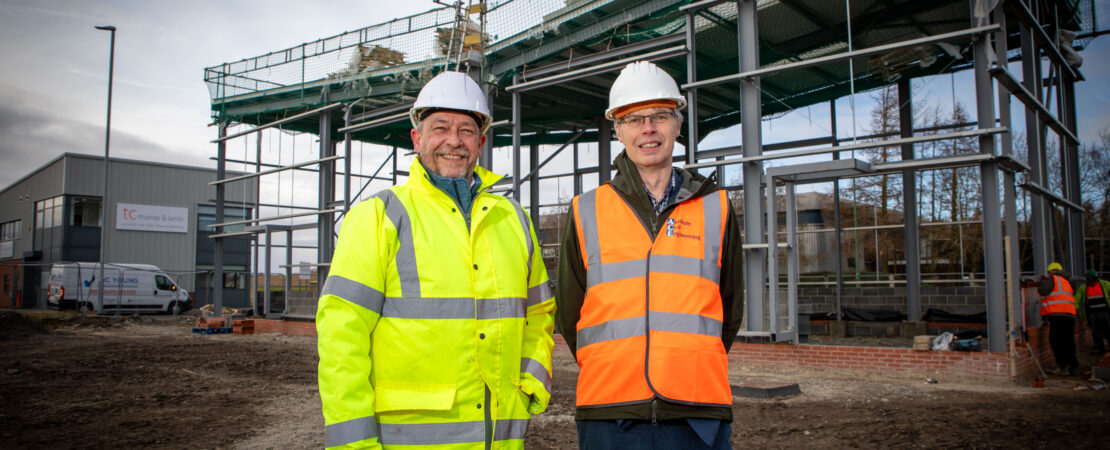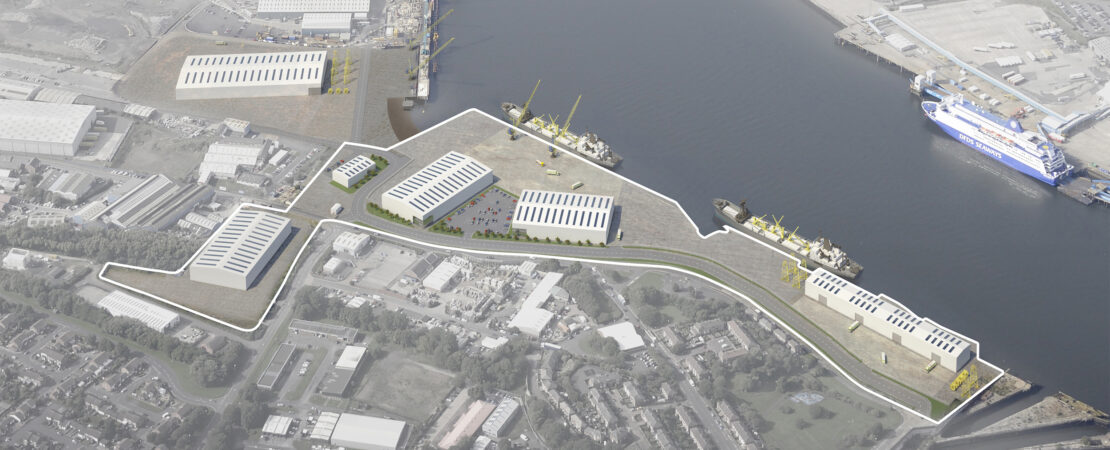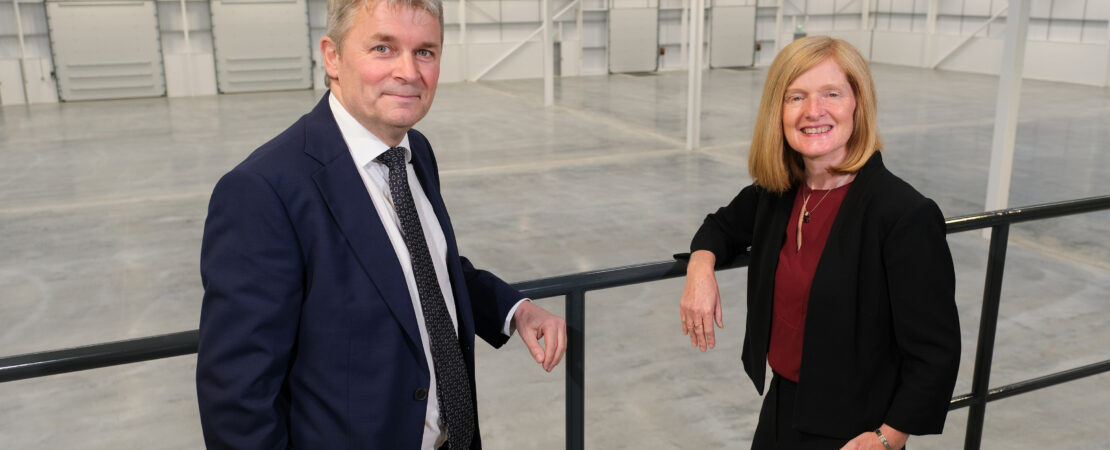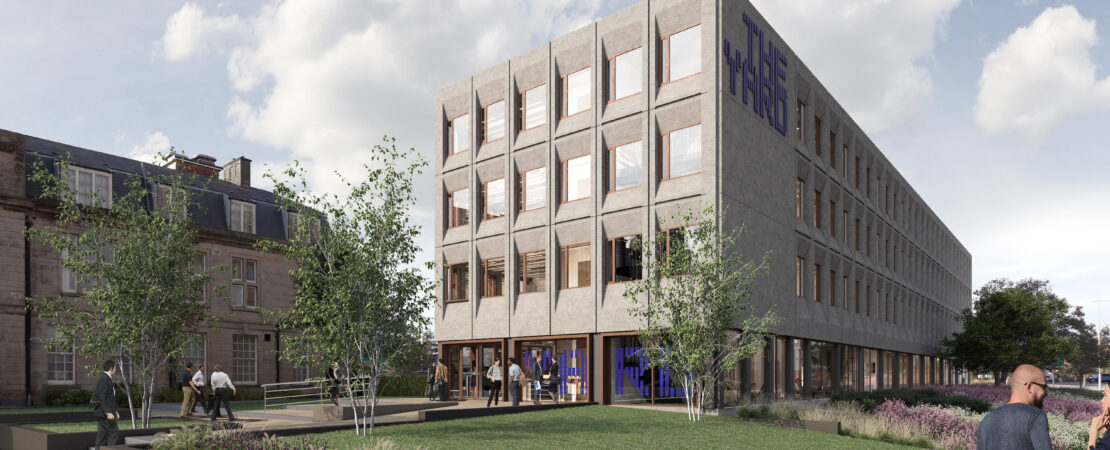By Ray Browning, Programme Manager at the North East Local Enterprise Partnership
Central to the delivery of the North East Strategic Economic Plan is the region’s access to infrastructure funding, and importantly, how that funding is managed and invested across the region to create more and better jobs.
The Local Growth Fund and Enterprise Zone programmes represent two of the biggest funding schemes managed by the North East LEP. Since 2014, more than £270m has been invested through the Local Growth Fund and £69m through the Enterprise Zone programme.
To help us understand how effective both programmes have been in delivering their objectives, and those set out in the North East Strategic Economic Plan, we appointed Steer Economic Development (Steer-ED) to carry out an interim evaluation of both the Local Growth Fund and Enterprise Zone programme.
The resulting report highlights how two of the North East LEP’s biggest capital programmes are making a visible difference to key development zones across the region, and how they are improving the economic prospects of the North East.
The interim evaluation demonstrates how both programmes’ alignment with the Strategic Economic Plan, and its areas of strategic importance – Health & Life Sciences, Digital, Advanced Manufacturing and Energy & Low Carbon – have helped strengthen key employment sites across the region and attract significant public and private sector investment.
A good example of this is the performance of NETPark in County Durham, which received £25.2m from the Local Growth Fund. The investment helped create two new national research centres (CPI’s National Formulation Centre and National Healthcare Photonics Centre), the NETPark Explorer lab/office buildings, business incubation space, and opened up 26 acres of developable land through the creation of a 1km new highway, Rosalind Franklin Way.
Investment by the Local Growth Fund has helped Durham County Council and its partners firmly establish NETPark as one of the UK’s leading science, engineering and technology parks. It has also positioned the North East as one of the UK’s leading health and life science clusters, a key objective of the Strategic Economic Plan.
Another area of strategic importance that has seen significant growth due to investment from the Local Growth Fund and Enterprise Zones programme is in advanced manufacturing. No more so than on the 150ha International Advanced Manufacturing Park (IAMP) that has been taking shape since 2018, in a partnership development between Sunderland City Council and South Tyneside Council.
This nationally important employment site is supporting the region’s expanding advanced manufacturing and automotive sector, and is receiving £41m from the Local Growth Fund and £33m from the Enterprise Zone programme. Phase 1 has so far attracted three major manufacturing investments by SNOP UK, Faltec Europe Ltd, and most recently, Envision AESC, which will build a £450m Gigafactory on IAMP as part of a £1bn partnership with Nissan UK to create an electric vehicle hub in the North East.
As well as looking in-depth at some of the projects funded by the Local Growth Fund and Enterprise Zone programmes, Steer-ED’s interim evaluation also highlights some of the more qualitative, strategic added value impacts of the programmes in the North East LEP area, including, driving the low carbon agenda and supporting community impact.
The North East has gained a reputation as one of the UK’s leading destinations for advancements in green, sustainable, low carbon energy. Investment from the Local Growth Fund and Enterprise Zone programmes in schemes like the District Energy Centre at Newcastle Helix and Northumberland Energy Park have been central to growing the sector and attracting business investment.
Similarly, both programmes have supported projects that deliver huge benefits to local communities in the North East. The iconic Beacon of Light in Sunderland, the Vertu Motors Arena in Newcastle (home to the Newcastle Eagles), and the Nexus Learning Centre in South Shields are all great examples of projects that help deliver real benefits to their local communities; be that through training, apprenticeships, Further Education, or access to employment.
To date, the Local Growth Fund programme is ahead of its original target of 4,752 jobs by March 2021, having helped attract 6,300 jobs – 33% above forecast by this stage. Whilst the programme is ahead of schedule on job creation, we recognise there is still work to do to meet our 18,500 jobs target by 2025/26.
The Enterprise Zone infrastructure investment programme continues to be being rolled out across 21 sites in the North East, with 1,805 jobs secured so far against a long-term target of 26,935. The investment decisions in 2021 by Equinor to locate its Dogger Bank Wind Farm Operations and Maintenance base at Tyne Dock, and JDR Cables Ltd announcement that it is to develop a £130m manufacturing facility on Northumberland Enterprise Park, are welcome commitments that give confidence to our belief that employment levels will begin to accelerate across several EZ sites over the next two-three years.
Overall, Steer-ED’s analysis of both the Local Growth Fund and Enterprise Zone programmes has positively assessed the long-term cost/benefit value, as well as the transformative impacts of both programmes through specific local case studies.
Enabling works on major employment sites, new office, laboratory, R&D facilities and industrial space, supported by investments to improve access to strategic transport corridors are benefitting local SMEs and attracting major private sector investment. At the same time new training facilities facilities are supporting local communities to acquire the necessary skills to secure employment in growth sectors.
It’s encouraging to see the impact both programmes are already having on the physical transformation and realisation of new regional economic clusters, in line with the aspirations set out in the North East Strategic Economic Plan to create more and better jobs in specific sectors.
The executive summary of the interim evaluation of the Local Growth Fund and Enterprise Zone programmes, and details of all the projects supported, can be found on the North East LEP’s Evidence Hub.
A copy of the full interim evaluation is available upon request. Please email [email protected].




